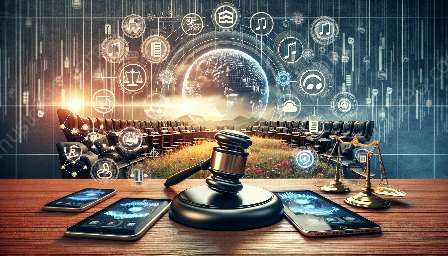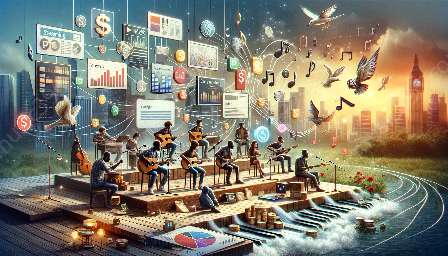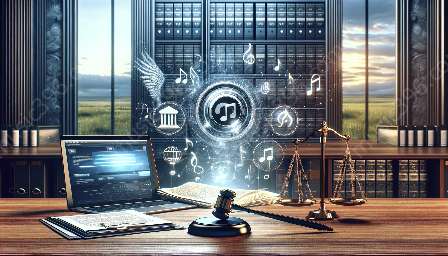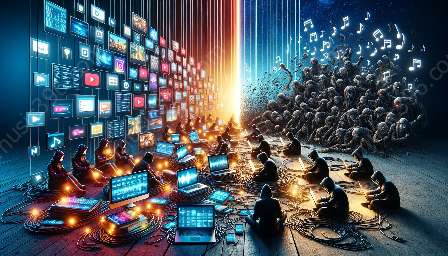Music copyright and new technologies have been deeply intertwined, shaping the modern music industry and the way we consume music. This guide aims to provide a comprehensive understanding of the relationship between music copyright and new technologies, particularly in the context of music streaming and downloads.
The Evolution of Music Copyright and New Technologies
Music copyright is the legal framework that protects the rights of creators and owners of musical works. As new technologies have emerged, the landscape of music copyright has evolved dramatically. The emergence of digital music and the internet has significantly impacted the way music is distributed, accessed, and monetized.
With the advent of new technologies, the music industry has seen a shift from physical sales to digital platforms. This transition has raised complex copyright issues, as digital music can be easily reproduced, distributed, and shared, posing challenges for copyright owners in protecting their intellectual property.
Streaming Services and Music Copyright
Music streaming services have revolutionized the way people access and consume music. Platforms such as Spotify, Apple Music, and Pandora have enabled users to stream a vast catalog of music on-demand, fundamentally altering the traditional model of music distribution.
Streaming services operate under licensing agreements with copyright holders, allowing them to host and distribute music to their subscribers. These licensing agreements are crucial in ensuring that creators and rights owners are compensated for the use of their music on these platforms. However, the complex nature of these agreements and the challenges associated with monitoring and tracking usage have raised issues related to fair compensation and copyright enforcement.
The Rise of Music Streams and Downloads
The shift towards digital music consumption has given rise to a significant increase in music streams and downloads. This trend has reshaped the music industry's revenue streams, prompting a reevaluation of copyright laws and licensing practices to accommodate the digital music landscape.
While streaming has become the dominant mode of music consumption, downloads continue to play a significant role in the industry. Digital downloads allow users to purchase and own individual tracks or albums, providing a different form of access to music compared to streaming. Copyright considerations in the context of digital downloads encompass issues of reproduction rights, distribution rights, and the digital public performance of musical works.
Key Copyright Challenges and Opportunities
The intersection of music copyright and new technologies has presented both challenges and opportunities for the music industry and copyright stakeholders.
Challenges:
- Digital Piracy: The ease of digital reproduction and distribution has led to rampant piracy, posing a significant threat to the copyright protection of musical works.
- Fair Compensation: The complex nature of music streaming and downloads has raised concerns regarding fair compensation for creators and copyright holders, leading to debates over royalty rates and revenue sharing.
- Enforcement and Monitoring: With a vast volume of music being accessed and shared online, enforcing copyright and monitoring usage has become increasingly challenging for rights holders and licensing organizations.
Opportunities:
- Global Reach: New technologies have expanded the global reach of music, enabling artists to connect with audiences worldwide and access new markets previously inaccessible through traditional distribution channels.
- Data Analytics: Music streaming platforms provide valuable data and analytics that can inform marketing strategies, audience engagement, and content creation, offering insights for artists and rights holders.
- Creative Collaboration: Digital platforms have facilitated new forms of creative collaboration and innovation, allowing artists to collaborate across borders and genres, leading to new musical expressions and experiences.
The Future of Music Copyright and New Technologies
As new technologies continue to emerge and reshape the music industry, the future of music copyright will be shaped by ongoing developments in artificial intelligence, blockchain, and immersive audio experiences. These advancements will bring forth new challenges and opportunities for the protection and monetization of musical works in a rapidly evolving digital landscape.
Ultimately, navigating the intersection of music copyright and new technologies requires a comprehensive understanding of legal frameworks, licensing practices, and the ever-changing dynamics of the music industry.


























